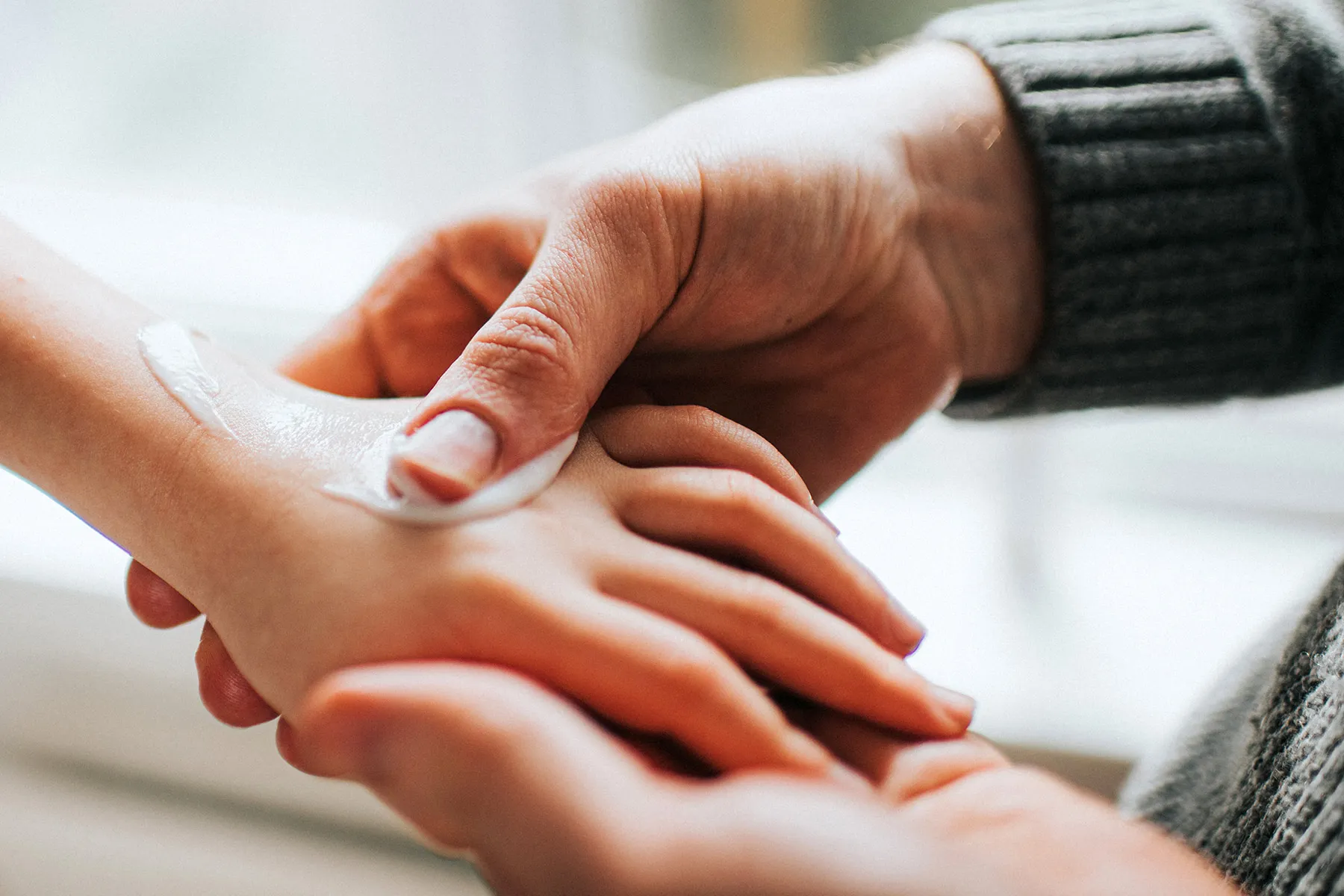Atopic dermatitis (AD) can be a long-lasting condition that causes severe, itchy rashes. At times, you may feel like you can’t stop scratching, which can lead to other problems.
“With scratching, breaks in the skin can also get infected, causing impetigo, blisters, and swelling,” says Adam Mamelak, MD, a board-certified dermatologist in Austin, TX. “These blisters can ooze fluid or crust over time, causing rough areas and scabs on the skin.”
Here’s what you can do to help your skin heal and try to prevent infections. When your skin is damaged or broken:
Try not to scratch
Instead of scratching with your nails, try to press or rub the area with your fingertips. Keeping your nails short will help. You can also try to cover your inflamed skin. You may be less tempted to scratch if you can’t see it.
Moisturize your skin
Damaged skin has a hard time holding onto water. “Applying a thick emollient multiple times a day can protect and soothe cracked skin while sealing in moisture,” Mamelak says.
Greasy ointments like mineral oil and petroleum jelly often work best, but find a product that you like. You may need to try a couple to see which brands help your skin the most.
Soak in an oatmeal bath
Colloidal oatmeal (finely ground oatmeal) has special compounds that can help strengthen your skin barrier. Add the oatmeal to a lukewarm -- not hot -- bath and soak for 10 to 15 minutes. When you get out, gently pat your skin dry and apply moisturizer right away.
Apply wet wraps
During a severe flare, a wet wrap can soothe inflamed skin and help lock in moisture. Dampen a clean gauze or a cotton cloth with warm water, then gently press it onto your skin. Cover it with a layer of dry cloth or gauze. For best results, keep the wraps in place for several hours or overnight. Try not to let them dry out.
Take allergy meds
When your itching is intense, an over-the-counter antihistamine can give short-term relief. Diphenhydramine (Benadryl) may work but could make you sleepy. You may want to take it at bedtime. Non-drowsy options include cetirizine (Zyrtec) and fexofenadine (Allegra).
Know when to ask for more help
Call your doctor if your:
- Condition gets in the way of your daily routine or keeps you from sleeping
- Skin shows signs of an infection (like pus, red streaks, or yellow scabs)
- AD doesn’t improve even after you try different home remedies
- AD is severe or covers a lot of your body
The doctor can prescribe a treatment, like a steroid cream to ease skin inflammation or an antibiotic to fight infection. They may try newer treatments for AD.
“Prescription medications can make a huge difference,” says Lawrence Eichenfield, MD, chief of pediatric and adolescent dermatology at Rady Children’s Hospital in San Diego, CA.
Daily Habits to Help Care for Your Skin
Taking care of your skin on a daily basis can also help manage your AD and prevent skin from further damage. Some things you can try include:
Use a mild, fragrance-free soap
“Be careful of over-washing the skin with harsh soaps or those with heavy fragrances,” Mamelak says. “Soaps can further strip the natural protecting oils away from the skin. AD skin is much more prone to irritation and allergies from fragrances, dyes, and scents.”
Watch what you wear
Tight, itchy clothes or rough fabrics like wool can irritate your skin. When you can, opt for loose-fitting outfits made from smooth-textured fabrics, like 100% cotton or silk.
Keep cool
Sweating can cause AD skin to flare. “Make sure to keep cool with a fan, air conditioning, and breathable clothing,” Eichenfield says. Dress in layers so you don’t overheat.
Turn on a humidifier
Hot, dry air pulls moisture from your skin, making itching and flaking more likely. A small room humidifier, which releases water vapor or steam into the air, can help protect your skin when you’re at home or at your office.
Manage your stress
Negative feelings can make AD worse, so try to find ways to cope with the stress in your life. If you need extra support, you may find it helps to talk to a counselor or join a support group.
Try probiotics
Although more research needs to be done, adding probiotics (live bacteria that are good for you) to your diet may help. “Some studies suggest that probiotics can help to control AD and relieve symptoms,” Mamelak says. “Probiotics help to boost the immune system and control allergies, which is especially true for children.”
If you’re curious about taking a probiotic supplement, talk to your doctor.
EPILYNX SKINCARE TIP: use heavy creams with ayurvedic extracts and oils such as neem oil, borage seed oil, centella asiatica and horse tail.





1 comment
ok
Theresa Drew
Leave a comment
This site is protected by hCaptcha and the hCaptcha Privacy Policy and Terms of Service apply.